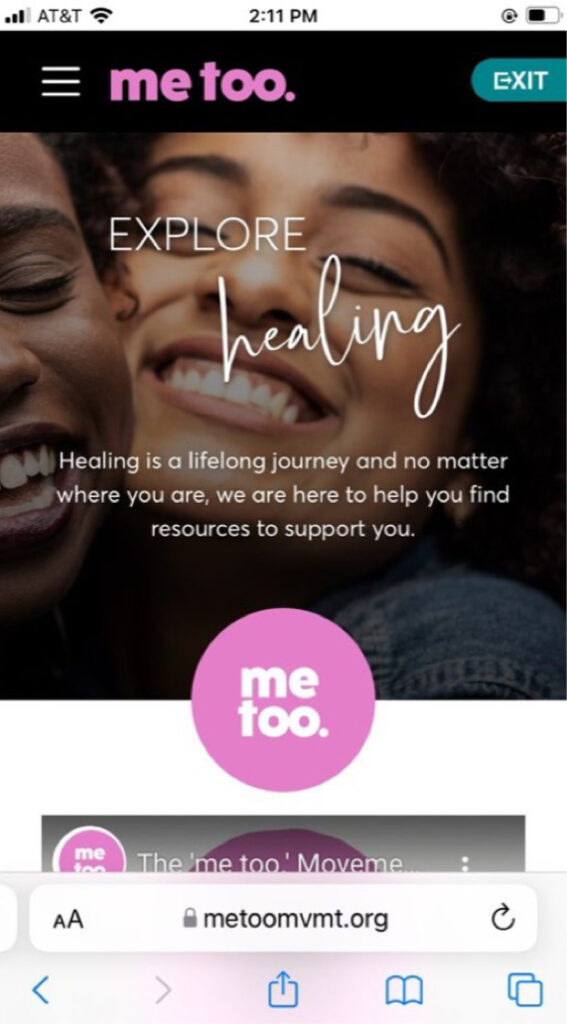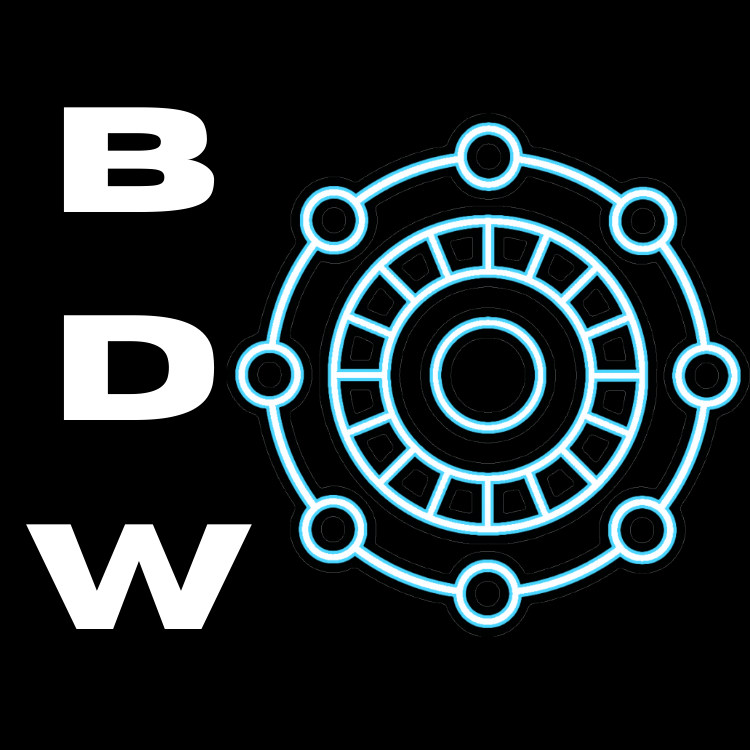`The Me-To Movement site’s use of the words “healing” and “you’re not alone”, present a positive online argument for the underrepresented community in achieving its end goal of fighting sexual violence globally. While that is all good, there are many critics that say otherwise. To start, the site’s use of the words will be discussed as to how they create this online presents within digital rhetoric. next, other scholars will be discussed on their views in support of such language within their own analysis. Lastly, a critic will be mentioned and their views against the language being used to fuel the online presence of the site and organization respectively.

To start, the site itself uses the words mentioned above in a way to capture the hearts of its visitors. It argues that sexual assault survivors are not invisible from the community when battling their struggles (Me-To Movement, 2021). Also, the journey of healing can start and be paused at any moment (Me-To Movement, 2021). Such language argues for positive signals sent all across the web to members and non-members alike. Ninety nine percent of the time this is the case and most scholars can agree that such arguments and language do bring about a positive online presence for the abused and oppressed. The following sections will illustrate the opinions of such scholars and how my synthesis of it all ties to their analysis.
In 2019, Dighton wrote a paper on how such language such as Me-To or healing as examples can be used in an online environment to start protests in order to bring positivity and societal change. She uses the quote “Fuck your flips” in order to show that using such language online can spark positivity online and offline with an emphasis on online communities (Dighton 2019). Furthermore, such language like with healing in reference to Me-To, sparked many people to take action and stop the racism going in the town of Boil Heights as stated in her 2019 analysis of how these arguments can and do change the conversations that happen around the fight against such societal issues.
However, McGuire states in her 2019 article that such words as healing in an online space can create an even more hopeful conversation amongst the community of survivors alike with the exception of adding disease into the mix. This scholar goes on to point that healing can be sued as a world online through social sites as ReadIt to show support to those suffering from PCOS (McGuire, 2019). For one, using such a word as healing on an online platform can bring more awareness to those that don’t know what this disease is and how hard it is to deal with from an emotional to a physical aspect. Arguing on ReadIt that healing is a good road to survival from a disease can not only bring women and men together, but it can give them the support that they need while on their journey to recovery just like with Me-To and its same use of the word to show case that healing can be possible through the right kind of support. It doesn’t matter whether it is through conversation on ReadIt posts or on the site’s healing resource library, such one worded rhetorical language can indeed bring about a stronger community online that can then transfer into the physical space.
Even though “you are not alone” is not mentioned, the implication of such words could be found on platforms such as ReadIt in order to foster the argument of being more supportive of PCOS survivors just by saying explicitly or implicitly through other online platforms.
In the Washington times posted in 2018, the founder of this movement and its site spoke about how the Me-To name was being used in a very negative way. In this piece, Noveck the author stated that Berk was nominated the award of the most influential activist of 2018, and that the name of the movement isn’t supposed to be used as a way to bring others down in hash tags other forms of social media. Instead, women should use this name according to Noveck 2018 and Berk in a positive way to empower women to be stronger against online assaults both sexually and otherwise.
While all of these people have expressed how such online arguments can be used to bring positivity and awareness, others think the opposite. This criticism comes in the form of memory and forgetting what was originally written about in an online space.
Hat is most interesting, is how forgetting and memory are used in pushing digital rhetoric into conversations that can spark controversial debates and perspectives within the online community. As Welsh noted in her 2019 publication, such tools can be used to make us forget what wel put up in a tweet or other forms and how that can never be truly lost amongst future postings once it has been intepreted or misinterpreted.
In this piece, she uses an original tweet from a mother who posted it on her account as a way to fight sexual assault from her own experiences. However, the most interesting part about it was the fact that she put her son in the middle of the tweet as a way of support her and her cause (Welsh, 2019). As always, this tweet got re-shared and reposted many times over the course of the next twenty four hours resulting in the forgetfulness of what was originally posted (Welsh, 2019.) Memory in the digital sense, was later used by the author to find the the original posting and its reply by the mother’s son stating, “I do not support this movement with the changed argument of Him To” (Welsh, 2019).
Such criticisms bring about the notion that the Me-To website doesn’t address men properly because of how such words are used in tweets to push for claims in support of support for such survivors and their loved ones. It seems to me that the rebuttle has sparked a revolution of anti-Me-To support that could be seen in his tweets as a way of saying what about me? Yet, because of how data can be erased from such platforms, it makes it that much more difficult to attack his claim in the form of opposition as I sure have been made on Twitter in favor of his position. Scholars like Welsh, highlight that such words and statements as “you are not alone” for example don’t always clearly show case true diversity and inclusivity within an online space whether it be a site or a twitter account. Memory in this way shows how we truly can’t erase what we have posted from the system because of how it gets seen, shared, posted, and reposted in attempts to keep it alive and going through discussions for against its content. This means that we can never truly forget what has been said online because the web acts like a human brain to the extent that it does remember what has been argued about and its counter arguments like the anti-MeTo supporters that feel excluded from the online community and conversation. In Doug Eyman’s text, both memory and reporducing are reenforced by such tweets and their outcomes.
In his text, Eyman describes how memory can be used both in a digital sense when information is stored and retrieved for later use just like it was done in ancient Greek times. however, the practice of reproducing such lost information is definitely seen in both the tweets mentioned above that keep the conversation going around who isn’t or is in support of what the movement and its site are trying to promote which is positivity, healing, and awareness to those in need. Therefore, data is never tryly forgotten it is just re-shared over and over again to create a strong digital network of people arguing for digital support sexual assault survivors through the use of such encouraging words that foster better inclusivity.
However, here is my take on all of this. It is very wonderful that such online presences have fostered positivity communities for support through such harsh situations like sexual assault and other adversities. However, because of how the language on the website and in other platforms is used in support of only group, I feel that the language should be modified in order to explicitly include all ethnicities and genders along with other underrepresented communities. To further emphasize my argument, such language both on the site and other platforms should be used to foster more positive feelings and conversations instead of it being used to show inclusivity or destruction amongst people.
